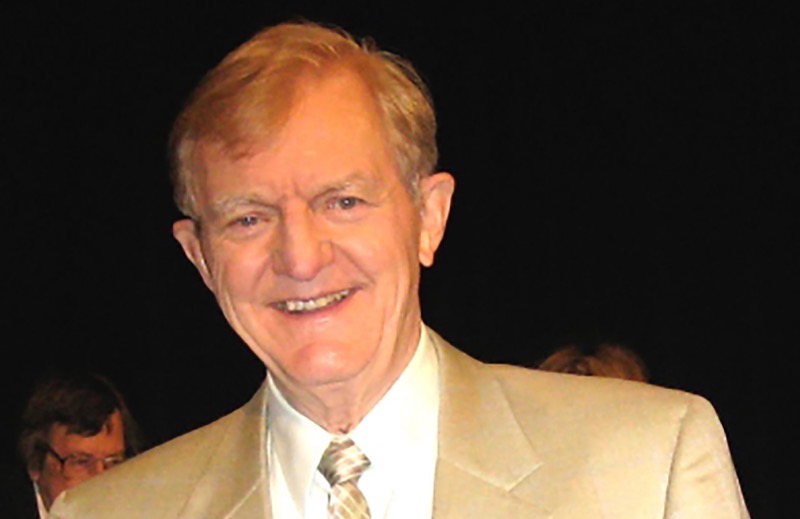Mind, “The Most Powerful Instrument in the World”
GORDON H. BOWER WF ’54 ON MIND AND MEMORY
Share

With a father who read the entirety of the Encyclopedia Britannica, a high school teacher who took an interest in his intellectual development over his pitching arm, and influential mentors throughout his graduate career, Dr. Gordon H. Bower WF ‘54 was primed early on not only to love to learn, but to love the very subject of learning.
Over the course of his 50-year career as a psychologist, Dr. Bower’s research has ranged over a variety of topics, most notably aspects of human memory. In particular, Dr. Bower’s research has elucidated the many ways that memory is influenced by the emotions that people are feeling at the moment. In 2002, the Review of General Psychology named Dr. Bower one of the most notable psychologists of the 20th century. In 2005, President George W. Bush awarded him the National Medal of Science for “his unparalleled contributions to cognitive and mathematical psychology, for his lucid analyses of memory and learning, and for his important service to psychology and to American science.”
This productive and prodigious career is thanks, in part, to a year Dr. Bower devoted to studying mathematics and philosophy of science at the University of Minnesota as a Woodrow Wilson Fellow.
“It was that year at Minnesota that got me perfectly set up for a graduate career and academic career that I subsequently had, including being an educator and professor of psychology at Stanford,” said Dr. Bower.
Out of high school, Dr. Bower turned down multiple offers to play professional baseball and attended Western Reserve University (now Case Western Reserve) on a baseball scholarship. His Fellowship year at Minnesota allowed him to explore further in the philosophy of science and higher mathematics, narrowing down his choice of graduate programs and professors.
He went on to Yale University to study the psychology of learning with Neal Miller, his lifelong mentor. After completing his Ph.D. in learning theory in 1959, Dr. Bower was hired in Stanford University’s Department of Psychology, where he would spend his entire career.
As an educator and professor, Dr. Bower spread his intellectual curiosity to his students and advisees.
“I used to hold group meetings at my research lab where we would have think sessions,” remembers Dr. Bower. Students would consider the latest research, and he would exhort them: “Think of some new way to go with our work, with your work, with my work. What’s next? How can we dig a little deeper?”
Dr. Bower has served as senior advisor for roughly 54 Ph.D. candidates and received numerous awards for his mentoring. He was a mentor to Stephen Kosslyn (p. 10) and many other notable psychologists. “I’m primarily interested in cloning myself and them becoming college professors in experimental psychology,” he admits.
“A good mentor provides students with the goals and motivation to carry on,” says Dr. Bower. “They say to themselves ‘I want to have good ideas like those my mentor has.’ Moreover, a good mentor serves as a discriminating reinforcement dispenser or critic of students’ work. Students learn to value that feedback and encouragement.”
Even today, as Stanford’s Albert Ray Lang Professor of Psychology, Emeritus, Dr. Bower seeks knowledge and explores his interests by attending classes with his wife on the Stanford campus.
“Being a Stanford professor for 50 years I got to know who were the really good lecturers,” he says. “So I could go to classes they were giving that had a big enough crowd that I wouldn’t stand out.”
While he was working, Dr. Bower would take classes like computer science, artificial intelligence, or other psychology classes. Now that he is retired, he explores interests outside his work, like literature and history. Recently, he and his wife have taken courses ranging from drama to politics, the Great Depression to the short stories of Chekhov.
By following his own sense of curiosity and encouraging students to ask big questions, Dr. Bower has helped to unlock the possibilities of memory and the mind, establishing himself as one of the most influential psychologists of his time.
“The mind is the most powerful instrument in the world,” Dr. Bower says in a video produced by the National Science and Technology Medals Foundation. “The mind generates our abilities and it drives what we are. It is the essence of our biography, it contains the processes by which we have evolved. … Learning and memory is central to the development of human powers.”
Stay Engaged
Get More News
Join our mailing list to get more news like this to your mailbox.
Support Our Work
Help us invest in the talent, ideas, and networks that will develop young people as effective, lifelong citizens.
Ways to Support Us